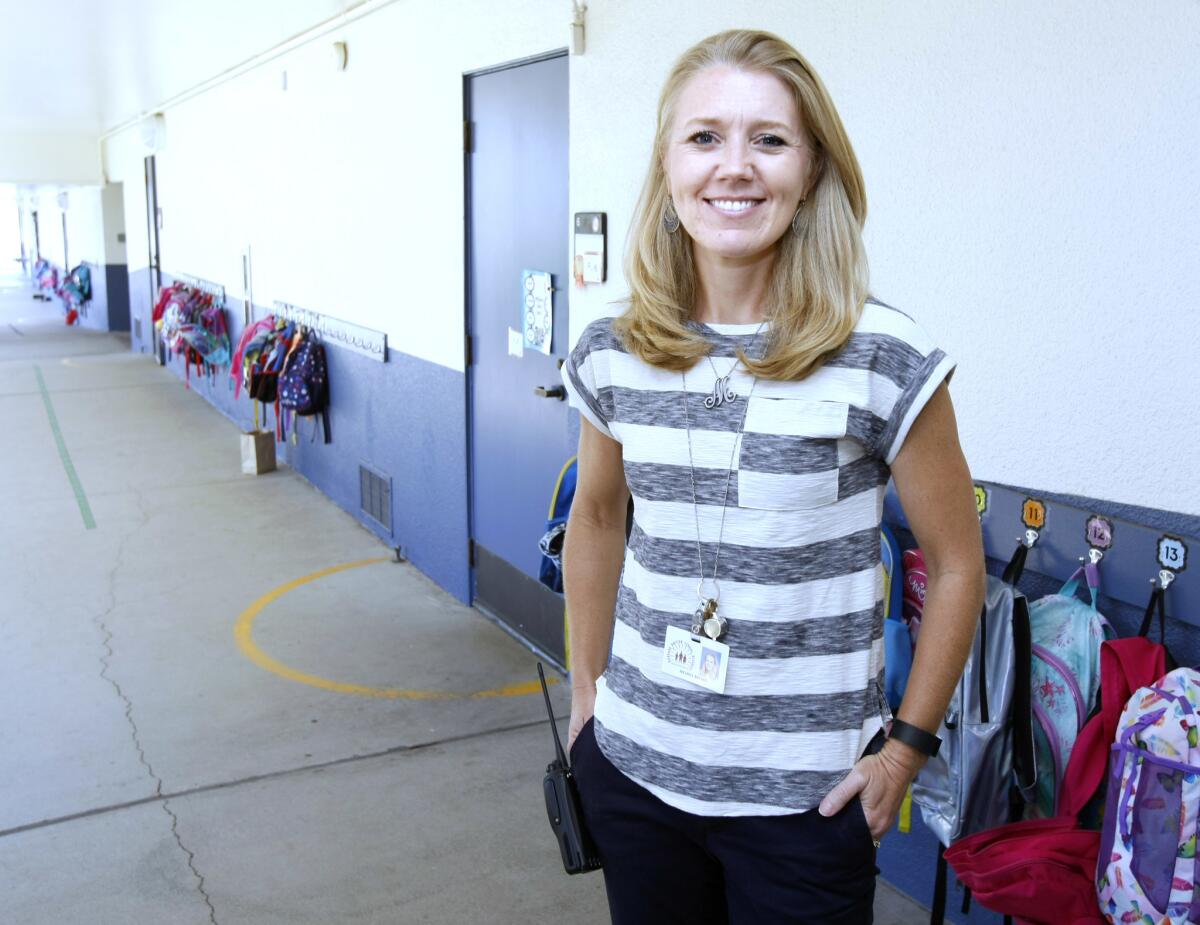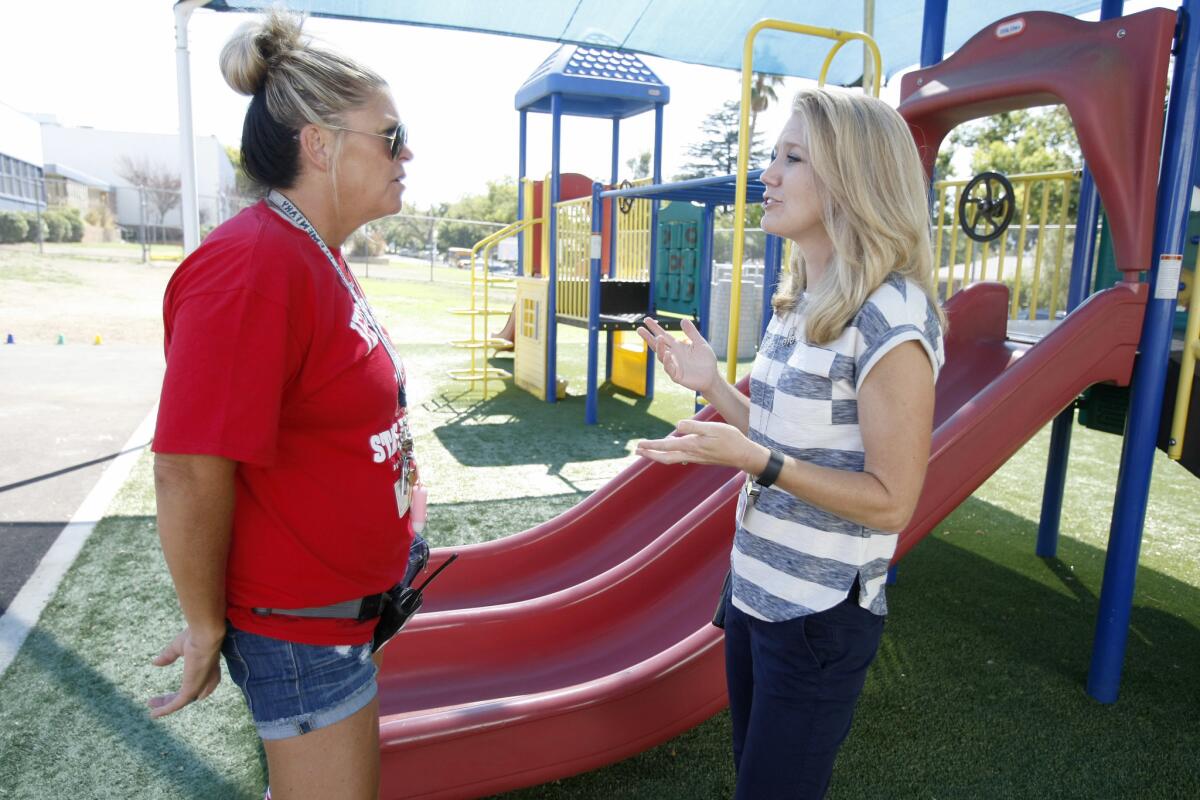Intervention specialists help students process emotions as part of Burbank Unified’s mental health and wellness plan

Melissa Brumit is the intervention specialist at Thomas Jefferson Elementary in Burbank.
There’s a nickname Melissa Brumit goes by at Thomas Jefferson Elementary School that was given to her by some of the youngest students on campus.
They call her “the feelings lady.”
Brumit is one of 11 intervention specialists working at each of Burbank’s elementary schools to teach children how to identify emotions, communicate what they’re feeling and why, and practice empathy for others.
Her position, as well as the jobs of 10 other specialists in the district, were created with support from Burbank school officials before they approved a mental health and wellness plan earlier this year to bolster their commitment to students’ social and emotional well-being.
Join the conversation on Facebook >>

Melissa Brumit, the intervention specialist at Thomas Jefferson Elementary School, right, talks with yard supervisor Kristi Chase.
At Jefferson, Brumit leaves her office during recess to make herself visible to children on the playground, where she’ll play four square and tetherball with them.
“The students can see I’m not the disciplinarian and I’m not the teacher. I’m there to be with them. I think that helps them to trust me,” she said. “It’s a great space for me to connect with those kids while we’re just casually playing games. I think it breaks down the barrier that would exist if you’re always behind a table or a desk.”
Students also know they can drop a note in a box attached to the door of her office.
In those notes, they’ve told Brumit about their dog dying, their parents divorcing or how a classmate wasn’t nice to them on the playground. She’ll then find the student and talk with them one-on-one.
Another critical component of an intervention specialist’s job is teaching “Second Step” curriculum to instruct students in becoming good listeners and to self-regulate their emotions instead of abruptly walking away from a situation or erupting with anger or frustration.
The tools they learn ultimately give students a “higher level of awareness of the mental state of everybody,” she said. “Student discipline happens because a student reacts to emotions.”
In small groups, she’ll instruct students to count backward from five or slow their breathing when they face an academic or personal hurdle, then explain what they’re feeling and why.
“Without this curriculum, you might have a kid who might erupt. He can’t focus. He has all these emotions flooding through him,” she said.
The Second Step program was piloted at Jefferson and Roosevelt elementary schools two years ago and has since been adopted districtwide.
As a parent of three, Brumit said she fully endorses the curriculum. She’s observed the level of awareness grow in students because they’re using skills she knows they’ll tap into the rest of their lives.
She said the skills are particularly important at a time when today’s culture moves so quickly and technology dominates.
“When technology is so rampant, sometimes it feels like communication can be a lost art. Getting in touch with your feelings is a foreign concept to a lot of students,” she said. “It’s really hard to slow down and articulate, ‘How I’m feeling’ and ‘How that’s going to affect me today.’”
When technology is so rampant, sometimes it feels like communication can be a lost art. Getting in touch with your feelings is a foreign concept to a lot of students.
— Melissa Brumit
As district administrators continue to make strides in supporting the mental health and wellness of students, they are also tracking how often students interact with the intervention specialists.
By the end of Wednesday, Brumit met with 34 students and talked to six parents, a workload that’s on the heavier side but one that’s fairly typical, she said.
“I think it’s proving to be a very strong support system for the district,” she said.
--
Kelly Corrigan, kelly.corrigan@latimes.com
Twitter: @kellymcorrigan
ALSO
Young vocalists will sing their hearts out at inaugural Burbank Singing Star competition
Council may consider new guidelines, design rules for single-family homes in October
